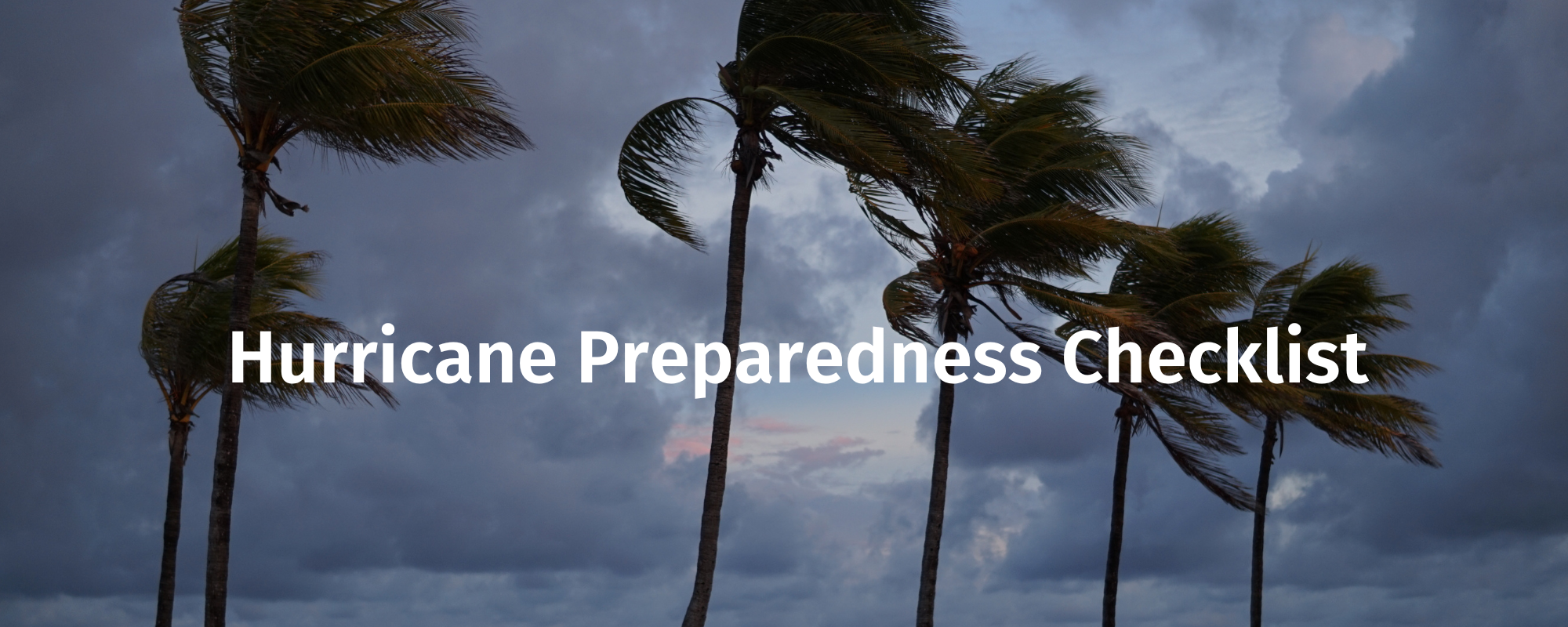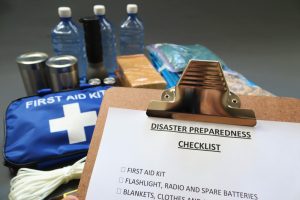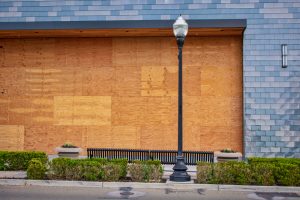
Champion Financial Services of the Year 2021
July 20, 2022
TTAIFA Best All Round Agent 2021
August 17, 2022Hurricane Preparedness Checklist


Forecasters at the USA’s National Oceanic and Atmospheric Administration are predicting above-average hurricane activity in 2022, making it the seventh consecutive above-average hurricane season. Early planning and careful preparation can help you to be more resilient to natural disasters. So, we’re sharing this hurricane preparedness checklist to help keep your family and your home safe.
Always
You can prepare for a hurricane long before there’s a storm warning. Remember that groceries and pharmacies are often packed if there’s news of an impending hurricane and you may not be able to get all the supplies you need. Try to accumulate the items below as soon as you can; you never know when they’ll come in handy. 
- First Aid Kit –Invest in a fully-stocked kit. If you, or a family member has special medical needs, ensure that your kit caters to them as well.
- Food & Water –You should have a supply of at least seven days of non-perishable items. Stock up on packaged or canned foods and beverages and bottled water. If anyone in your family has special dietary requirements, such as a gluten allergy or lactose intolerance, make sure that your food supply caters to them too. Also ensure that you have a can opener; those cans won’t be much good otherwise. If you have a pet, don’t forget the pet food!
- Important Phone Numbers –Create a list of emergency phone numbers. It’s a good idea to keep a hard copy of this list in a prominent place, like on your fridge, and save all numbers in your phone.
- Gadgets–You should have flashlights, batteries and portable cell phone chargers that don’t need electricity. Check flashlights periodically to ensure that they’re still working.
- Important Documents –Important documents should be kept in waterproof containers. Ziploc bags or sealed plastic containers are great, inexpensive options that will keep your birth certificates, passports and property deeds safe.
- Evacuation Plan –Everyone in your family should know how to get out of your house safely, should the need arise. Identify the nearest shelter or a loved one’s house which may be safer than your own and plan the best route to get there. Try to avoid roads that are likely to flood or be congested with traffic during an emergency.
- Insurance –Make sure that your home insurance and car insurance are up-to-date. Maritime’s homeowner/householder’s insurance provides comprehensive coverage for your home and its contents in the event of a hurricane or other natural disasters. Even if you’re renting, you can still insure the contents of your home with household’s insurance. Meanwhile, our comprehensive car insurance coverage includes protection against natural disasters such as hurricanes, earthquakes or floods. If either your home or your car is damaged, you’ll want an insurer who will settle claims quickly and painlessly.
Immediately Before
If a hurricane is approaching, it’s time to secure your property and make any last-minute preparations. If you live with others, you can split the task below among you so that nothing is forgotten. 
- Clean Your Yard–Secure any items that can be blown away by strong winds or that can potentially damage your property. Trim or remove trees that could potentially fall on your home.
- Your Windows –Windows can be boarded up to reduce the likelihood of glass breaking. For a more permanent solution, you can purchase hurricane shutters, security film or hurricane fabric.
- Minimize Flood Risks –Clean your gutters and drains. If your home is prone to flooding, places and bags near doors to reduce the risk.
- Check Your Car–Ensure that you have a full tank of gas. Pack a bag with essential items in preparation for evacuation; you may even opt to leave this in your vehicle. Move your car to the safest location to minimize chances of the vehicle being damaged during the storm.
- Charge Your Electronics–Ensure that every family member has a fully charged cell phone.
- Stay Informed –Check regularly for updates on the hurricane; you may also receive emergency alerts on your phone. Share updates with your family so that everyone is aware of what is happening.
- Review Your Evacuation Plan –It’s easy to forget important details in an emergency. Do your best to ensure that everyone is aware of what will happen if you have to leave your home.
For more information on hurricane preparedness, visit the ODPM’s website. Remember, you can’t control a natural disaster; however, you can control your response. Let’s all do our best to ensure that our families and our homes are protected.

